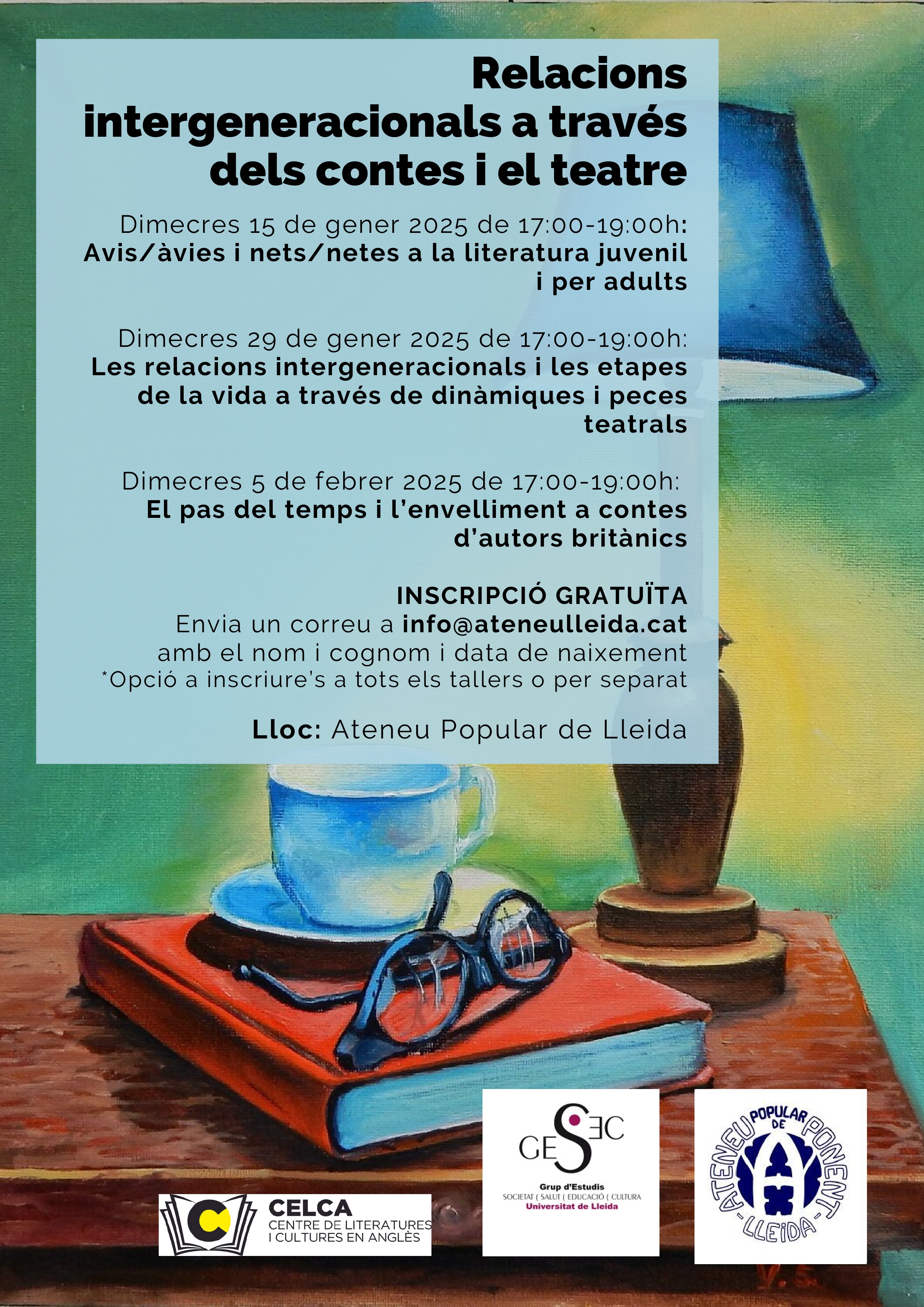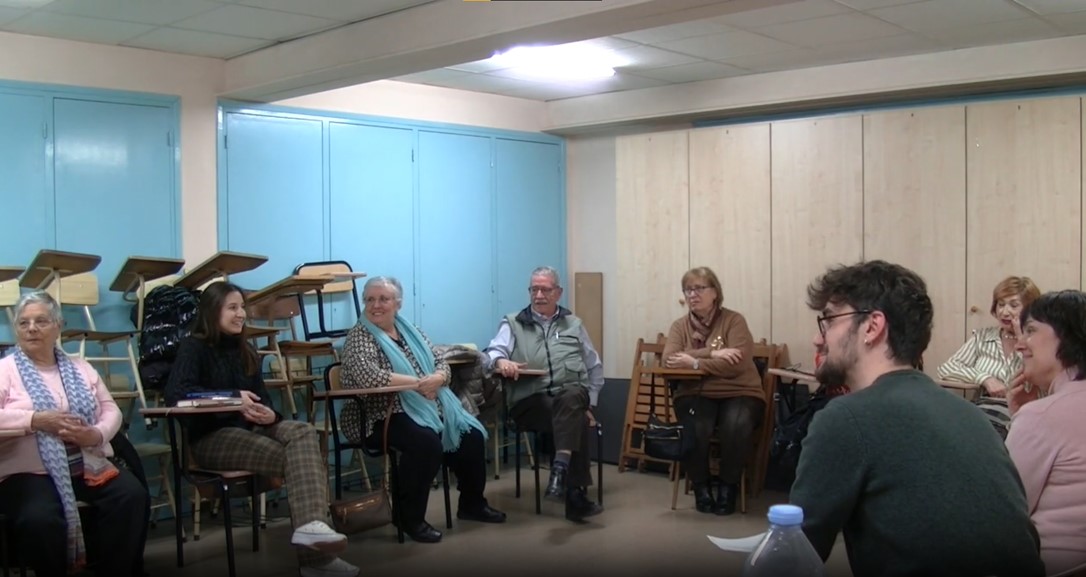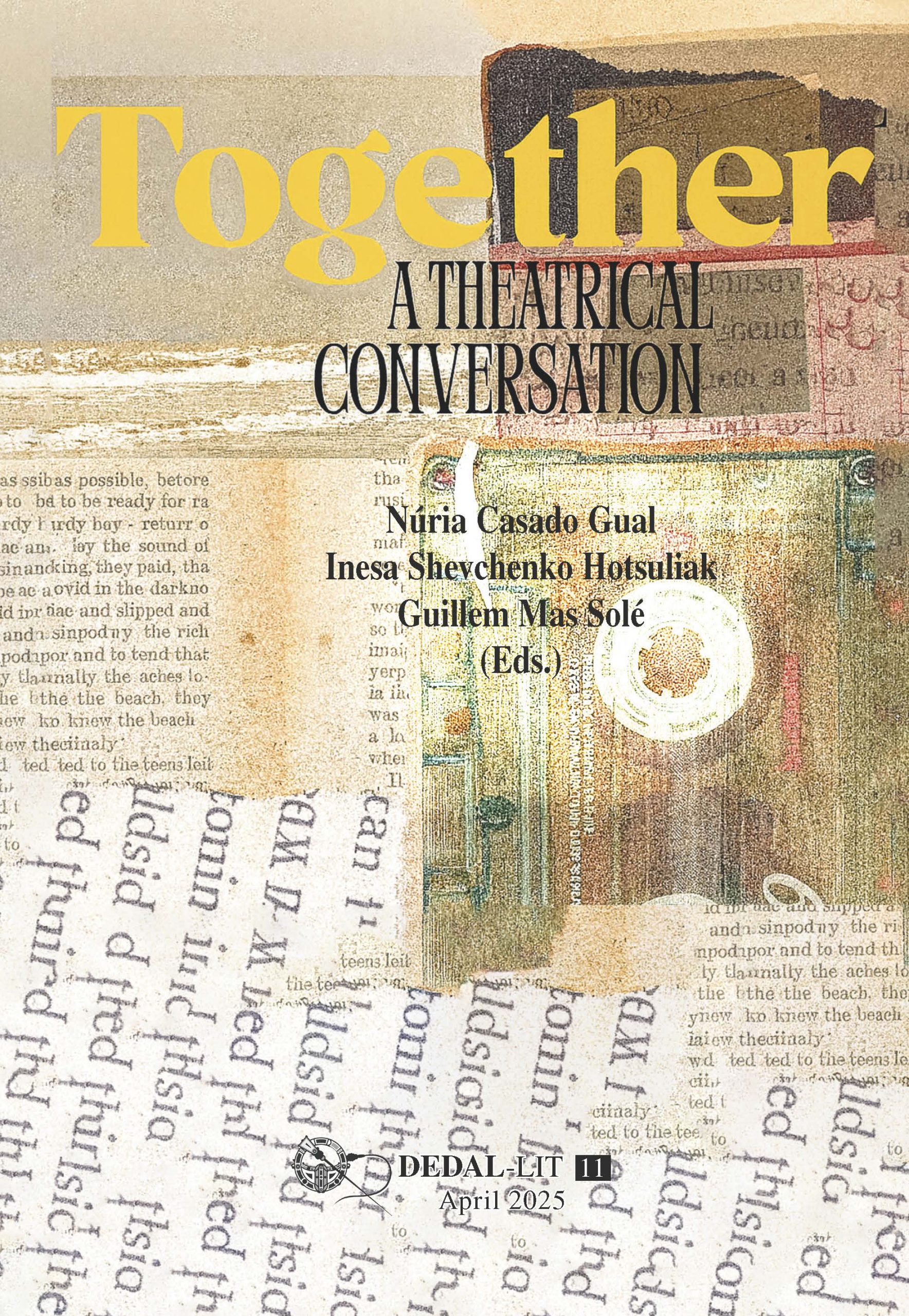INTERGENERATIONAL RELATIONSHIPS THROUGH STORIES AND THEATRE
Download PdfThe contemporary era and the welfare state have led to a significant increase in life expectancy, leading to a need to rethink the concepts of young and old, as well as the social and cultural spaces occupied by different generations. Literature and theater reflect these changes, encouraging us to reconsider what it means to be young and/or old, and to challenge the stereotypical ideas we have inherited about intergenerational relationships. The workshop we propose consists of three sessions, each focused on discussing and analyzing various literary texts through the lens of intergenerational relationships and the age stereotypes present in the stories. We aim to explore concepts related to generational connections through an open and relaxed analysis of the literary works in the program, while also incorporating some creative activities around them.
Session 1: The Passage of Time and Aging in Stories by British Authors
On Wednesday, January 15, the first session of the workshop series on literature, intergenerational relationships, and aging, offered by members of Dedal-Lit-CELCA and PRO-SUEDAD, took place at the Ateneu Popular de Lleida. In this session, we focused on a story by British author Julian Barnes titled The Fruit Cage. During the session, we explored how the author constructs a love triangle between three aged characters, in their seventies and eighties, and how, through these characters, he challenges age-related stereotypes as well as the concept of ageism.
Instructors: Maricel oró and Àngels Llurda
Session 2: Intergenerational Relationships and Life Stages Through Theatrical Dynamics
On Wednesday, January 29, the second session of the workshop series on literature, intergenerational relationships, and aging, offered by members of Dedal-Lit-CELCA and PRO-SUEDAD, took place at the Ateneu Popular de Lleida. This workshop aims to raise awareness of the richness of age as a source of theatrical creation, while also shedding light on the social and cultural constraints that limit it. Through various theatrical games, participants explore the emancipatory possibilities of their own age and that of others, creating dynamics of connection and creative processes that lead to better intergenerational communication and understanding.
Instructors: Núria Casado, Inesa Shevchenko, and Guillem Mas
Session 3: Grandparents and Grandchildren in Literature
On Wednesday, February 5, the third and final session of the workshop series on literature, intergenerational relationships, and aging took place at the Ateneu Popular de Lleida. In this session, we focused on observing and analyzing the stereotypes of both grandparents and grandchildren in contemporary children's and YA literature. During the session, we read excerpts, explored the models and characteristics of the grandparents appearing in current stories and children's literature, and analyzed them from each person's personal experience. We also reflected on everyday life, real-life cases, and other examples of how grandparents can be and act, which are not represented (or not as much) in literature.
Instructor: Anna Soldevila
Publication — Together: A Theatrical Conversation
Together: A Theatrical Conversation (eds. Núria Casado, Inesa Shevchenko, Guillem Mas) emerges from the Theatre Workshop in English directed by Núria Casado Gual at the University of Lleida, a course that for over a decade has combined theatre-making, pedagogy and critical reflection. Conceived as the creative core of the workshop’s 2024–25 edition, the play is the result of a large-scale intergenerational and collaborative process involving university students, former workshop members, theatre practitioners, mature actors, children performers and members of the University’s Senior Choir. Devised and directed by Núria Casado Gual, with Guillem Mas Solé as first assistant director and lead playwright, the piece brings together many voices, life stories and creative sensibilities in a shared exploration of ageing, care and generational memory.
The script published in this volume is a textual echo of a chorally devised performance shaped through interviews, personal objects, memories and collective dramaturgical work. Balancing humour and emotion with critical insight, Together foregrounds the value of intergenerational exchange and reimagines ageing as a stage of creativity, resilience and shared meaning. In its original production, the play demonstrated its ability to connect deeply with diverse audiences; in print, it invites new readers, scholars and theatre practitioners to re-stage, adapt and continue the conversation across generations.












